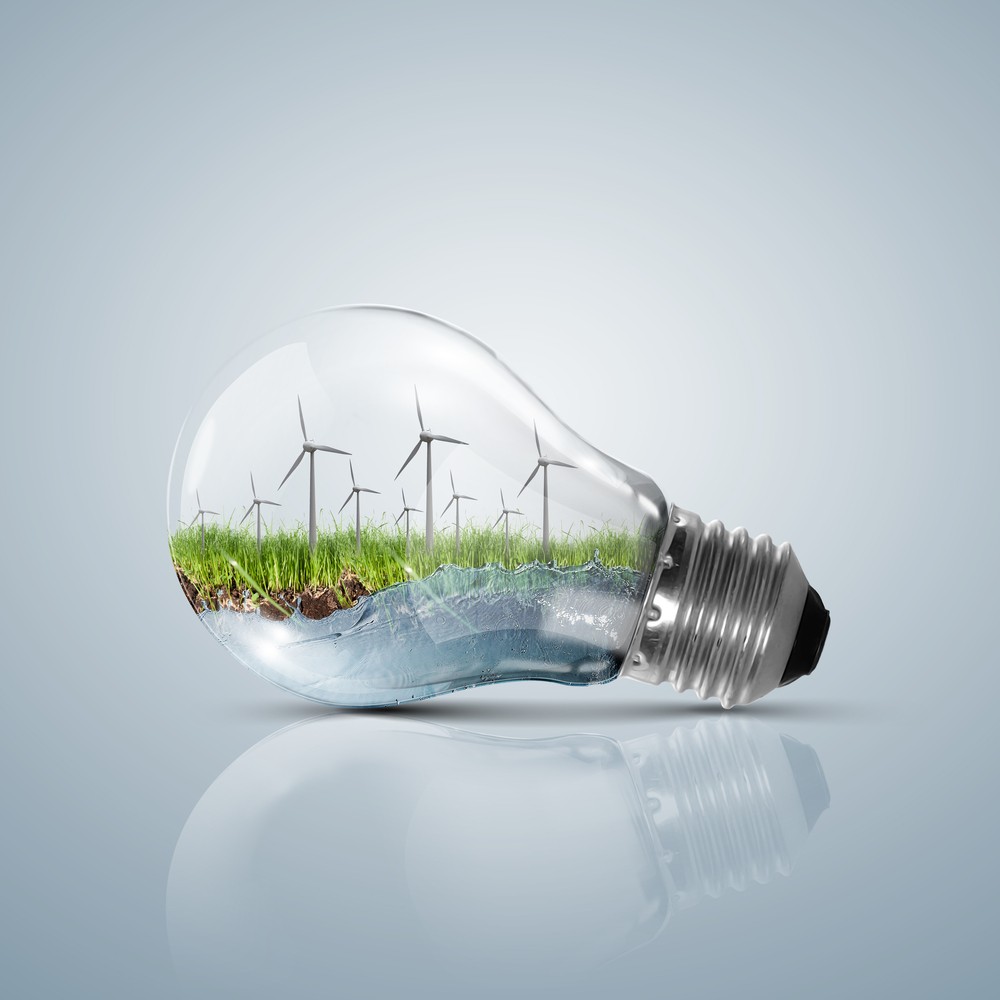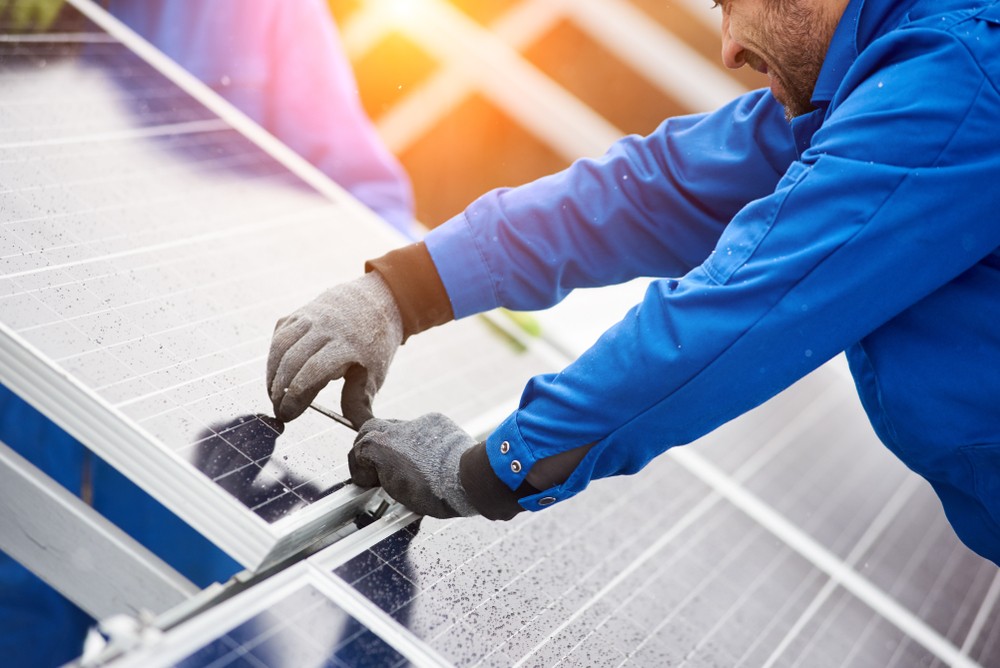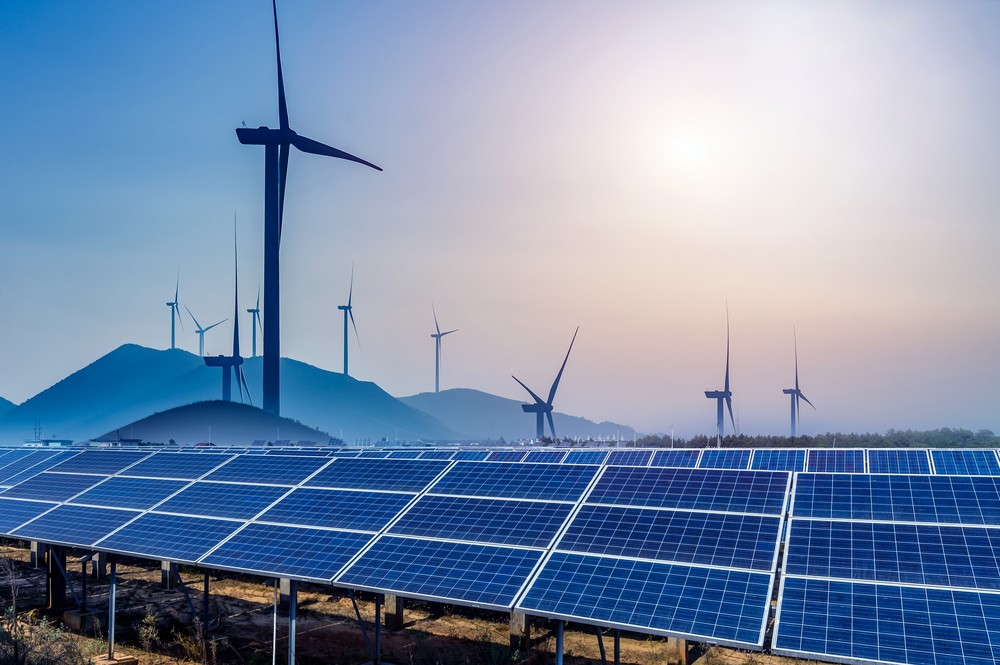Manufacturing Leads the Charge for Renewable Energy

Manufacturing has a reputation for being dusty and dirty — the product of coal dust-covered workers attributed to the early industrial revolution. People often think of manufacturing with images of smoggy factories, greasy gears, and coal-burning fires. The problem is, this picture isn’t accurate or indicative of manufacturing today. In fact, manufacturing is quickly moving away from fossil fuels and instead, taking up the mantle of greener energy and more sustainable practices.
As the push for renewable practices grows stronger within the U.S. economy, most people don’t realize that manufacturing is leading the charge. In fact, many of the largest domestic manufacturers have not only committed themselves to a sustainable future, they’re taking real steps to make it a reality.

Greener pastures on the horizon
Despite the United States’ current political agenda — which sees it removed from the Paris Agreement and stripping back environmental protections from previous administrations — manufacturing has taken sustainability upon itself.
Food manufacturing giant PepsiCo will source nearly 60% of its energy from renewable sources in 2020, with plans for total renewable reliance by 2030. In the same sector, General Mills targets a 30% total drop in emissions by 2030 and net zero emissions by 2050! For these companies and others like them, sustainability isn’t just a short-term effort — it’s a long-term goal.
Perhaps the biggest drivers of sustainability are technology manufacturers and those involved in sophisticated manufacturing. GE has not only committed to a renewable future, it’s actively closing the door on fossil fuels. The company recently announced its exit from planned coal projects and has shifted its focus to renewable ventures as it continues to, “make electricity more affordable, reliable, accessible, and sustainable.”
Even Apple, the largest public company in U.S., has shifted its manufacturing priorities to greener pastures. In the case of Apple, its emphasis on sustainability has global effects. Where its products are assembled, greener practices follow — including Taiwan, where sustainable wind power is one of the reasons Apple continues to rely on Taiwanese manufacturing. Apple is striving for net zero emissions by 2030.

Manufacturing stands as a steward
As the climate change crises worsens and social and political cries for change become louder, more manufacturers will be forced to change their practices. Many are voluntarily adapting already. And, as manufacturing sets the tone for a sustainable future, other companies will be forced to follow.
Despite the shift to a consumer-based economy, manufacturing is one of its driving forces. As consumers demand sustainability and manufacturing complies, it creates a continuum that pushes us closer to net zero emissions, green energy reliance, and eco-friendly practices. The missing piece of the puzzle is legislation.
Current policies and legislative practices seek to strip away environmental protections to make manufacturing easier, and it’s a practice that needs to stop. Thankfully, legislators are beginning to realize the adaptability of manufacturers and their position as stewards for sustainability. New legislation is already being written to help reinstate environmental protections and drive new ones, with long-term environmental remediation in-mind.
We only have one planet. Manufacturing is the only industry that deals directly with the complete environmental life cycle: from procurement of natural resources to the production of goods. As more manufacturers see the importance of preservation and sustainability, the manufacturing industry will continue to do what it’s always done: lead us into the next age of innovation.